Daly,
Herman

ENLARGE
|
Herman Daly is professor of economics in the School of Public
Affairs, University of Maryland. The following excerpts are from a
speech delivered 30 April 2002 at the World Bank:
Value added belongs to whoever added it. But the original
value of that to which further value is added by labor and capital
should belong to everyone. Scarcity rents to natural services,
nature's value added, should be the focus of redistributive
efforts. Rent is by definition a payment in excess of necessary
supply price, and from the point of market efficiency is the least
distorting source of public revenue.
Appeals to the generosity of those who have added much value by
their labor and capital are more legitimate as private charity
than as a foundation for fairness in public policy. Taxation of
value added by labor and capital is certainly legitimate. But it
is both more legitimate and less necessary after we have, as much
as possible, captured natural resource rents for public revenue.
The above reasoning reflects the basic insight of Henry George,
extending it from land to natural resources in general.
Neoclassical economists have greatly obfuscated this simple
insight by their refusal to recognize the productive contribution
of nature in providing "that to which value is added".
In their defense it could be argued that this was so because in
the past economists considered nature to be non-scarce, but now
they are beginning to reckon the scarcity of nature and enclose it
in the market. Let us be glad of this, and encourage it further.
The modern form of the Georgist insight is to tax the resources
and services of nature (those scarce things left out of both the
production function and GDP accounts) -- and to use these funds
for fighting poverty and for financing public goods. Or we could
simply disburse to the general public the earnings from a trust
fund created by these rents, as in the Alaska Permanent Fund,
which is perhaps the best existing institutionalization of the
Georgist principle. Taking away by taxation the value added by
individuals from applying their own labor and capital creates
resentment. Taxing away value that no one added, scarcity rents on
nature¹s contribution, does not create resentment. In fact,
failing to tax away the scarcity rents to nature and letting them
accrue as unearned income to favored individuals has long been a
primary source of resentment and social conflict.
|
Darrow,
Clarence
(1859-1938)
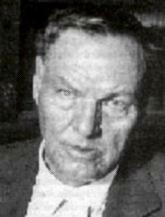
ENLARGE
|
Darrow, an attorney in the United States, made his reputation, in
part, by his defense of a schoolteacher who dared to teach the
scientific basis for evolution to students in a Southern school.
Of Henry George, Darrow wrote:
Henry George was one of the real prophets of the world; one of
the seers of the world. ...His was a wonderful mind; he saw a
question from every side. ...When we learn that the value or land
belongs to all of us, then we will be free men -- no need to
legislate to keep men and women from working themselves to death;
no need to legislate against the white slave traffic. ...The "single
tax" is so simple, so fundamental and so easy to carry into
effect that I have no doubt that it will be about the last land
reform the world will ever get. People in this world are not often
logical.
|
Darrow,
Clarence |
The single tax is so simple, so fundamental, and so easy to
carry into effect that I have no doubt that it will be about the
last land reform the world will ever get.
|
Davenport,
Herbert J.
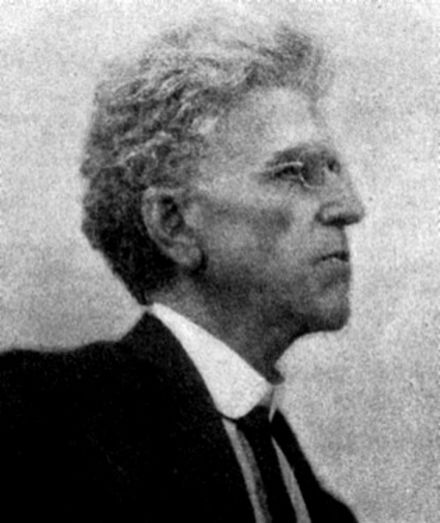
ENLARGE
|
It is obvous that the bare land with its contents and the
waters that flow through and about it constitute the
nature-provided environment of human beings and are rightly the
subject of their equal claims. Also that the value-for-use of
these natural resources is conditioned on population. It follows
populaton as its shadow. It appears with the people and disappears
when they go. This value, therefore, should, by the best of
titles, be retained by the community as its most excellent source
of public revenue. The more the community draws upon this vast,
community-conditioned fund the less will be the forced
contributions from labour and capital. this means that the greater
and better distributed wil be the purchasing power of the people..
[H.J. Davenport, Professor of
Economics, Cornell University]
|
Day,
Alan
(Professor) |
It is arguable that the whole of the rent of land, or
alternatively, of the capitalised value of rents, could be taxed
away and yet the community would not suffer. In this respect land
is different from the other factors of production.
[From comments made at a Colloquium on
Land Values held in London, March, 1965. Professor Day taught at
the London School of Economics from 1949 to. 1983. ]
|
Deakin,
Alfred
(1857-1919)
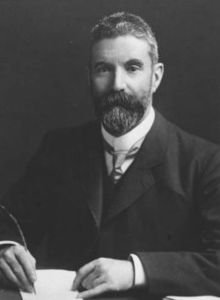
ENLARGE
|
The whole of the people have the right to the ownership of
land and the right to share in the value of land itslef, though
not to share in the fruits of land which properly belong to the
individuals by whose labour they are produced.
[Australian Prime Minister] |
Dewey,
John
(1859-1952)

ENLARGE
|
Dewey is considered to have possessed one of the great minds of
the twentieth century. His ideas regarding education were and are
controversial, if often misrepresented by opponents. In the early
1930s, Dewey became the first honorary president of the Henry
George School of Social Science in New York City. His attachment
to the ideas of Henry George was life-long:
Henry George is one of the great names among the world's
social philosophers. It would require less than the fingers of the
two hands to enumerate those who, from Plato down, rank with him.
... No man, no graduate of a higher educational institution has a
right to regard himself as educated in social thought unless he
has some firsthand acquaintance with the theoretical contribution
of this great American thinker.
|
Douglas,
Paul
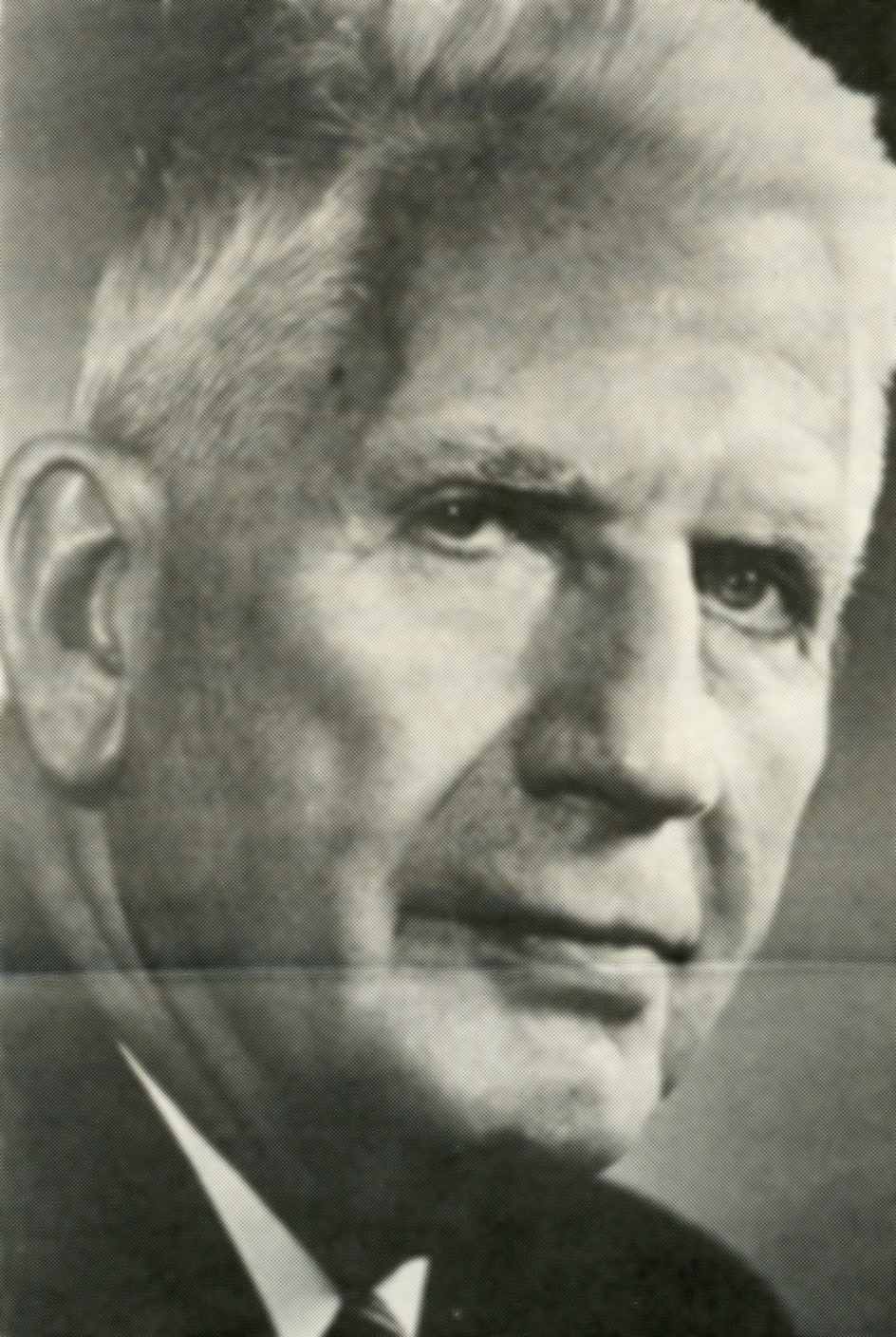
ENLARGE
|
We ask only that the men and women who make up society should
be allowed to share in the increases in value which their presence
and productivity have created. Unless there is such a public
awareness and commitment, we shall repeat the history of the past
and permit those who sit tight and hold on to a scarce factor of
production to reap a large part of the product created by others.
We are becoming properly aware of the need for land reform in the
countrysides of Asia and Latin America. There is an even greater
need for land reform in the cities and suburbs all over the world
-- our own country included.
[U.S. Senator from Illinois and
Chairman, U.S. Natinal Commission on Urban Problems, 1968]
|
Dove,
Patrick Edward |
Patrick Edward Dove, a Scotchman, was the most remarkable
anticipator of Henry George. In 1850 he published anonomously The
Theory of Human Progression, and Natural Probability of a Reign of
Justice. This is a diffuse work largely taken up with
philosophical and theologial specualation; economic problems
hardly seem to be the main issue. However, Dove referred to the
land question as "the main question of England's welfare."
How comes it that, notwithstanding man's vast achievements,
his wonderful efforts of mechanical ingenuity, and the amazing
productions of his skill, ... a large portion of the population is
reduce to pauperism? ...To charge the poverty of man on God, is to
blaspheme the Creator. ...He has given enough, abundance, more
than sufficient; and if man has not enough, we must look to the
mode in which God's gifts have been distributed.
[from: The Theory of Human
Progression, pp. 322, 320, 387]
Dove diagnosed the cause of poverty as the denial of the natural
right of all to the land of their birth, "the alienation of
the soil form the state, and the consequent taxation of the
industry of the country."
Dove believed that the actual division of the land, even if
possible, would be futile as a remedy. The solution was to be
found in "the division of its annual value or rent,"
which could best be done "by taking the whole of the taxes
out of the rents of the soil, and thereby abolishing all other
kinds of taxation whatever." If this were done "all
industry would be absolutely emancipated from every burden, and
every man would reap such natural reward as his skill, industry,
or enterprise rendered legitimately his, according to the natural
law of free competition."
"The rent of any one portion of soil does not depend on
the labour or capital that has been expended on that portion.
...For instance, if, in the heart of London, a space of twenty
acres had been enclosed by a high wall at the time of the Norman
Conquest, and if no man had ever touched that portion of soil,"
or even seen it from that time to this, it would, if let by
auction, produce an enormously high rent."
[Patrick Edwrd Dove, Elements of Political Science
(1854), p. 283]
"Political economists have insisted much on the small
matters that affect the value of labour. By far the most important
is the mode in which the land is distributed. Wherever there is a
free soil, labour maintains its value. Wherever the soil is in the
hands of a few proprietors, or tied up by entails, labour
necessarily undergoes depreciation. In fact, it is the disposition
of the land that determines the value of labour. If men could get
the land to labour on, they would manufacture only for a
remuneration that afforded more profit than God has attached to
the cultivation of the earth. Where they cannot get the land to
labour on, they are starved into working for a bare subsistence."
[Patrick Edward DOVE, Theory of Human Progression
(1850), p. 406 n]
|
Dove,
Patrick Edward |
We are fully aware that there exists in the minds of many
persons a vague apprehension, tht if the present laws relating to
landed property were to be disturbed, evils of the most malignant
character would invade the society of Britain. Nothing could be
more absurd, more puerile, more dastardly. The very same fears
have prevailed with regard to every other change that has taken
place.
[From: Theory of Human
Progression (1850), Chap. III., Sec. 3, pp. 294-5 (Edition of
1895)]
|
Dove,
Patrick Edward |
The great social problem, then, that cannot fail ere long to
appear in the arena of European discussion is, "to discover
such a system as shall secure to every man his exact share of the
natural advantages which the Creator has provided for the race;
while, at the same time, he has full opportunity, iwhtout let or
hindrance, to exercise his skill, industry, and perseverance for
his own advantage."
[From: Theory of Human
Progression (1850), Chap. III., Sec. 3, p. 305]
|
Dove,
Patrick Edward |
Let it be observed that when land is taxed, no man is taxed;
for the land produces, according to the law of the Creator, more
than the value of the labor expended on it, and on this account
men are willing to pay a rent for land.
[From: Theory of Human
Progression (1850), Chap. I., Sec. 2, p. 44 (American Edition
of 1895)]
|
Downs,
Anthony
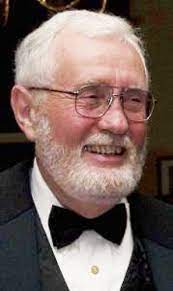
ENLARGE
|
Anthony Downs is a Senior Fellow at the Brookings Institution and
member of the HUD Commission on Regulatory Barriers to Affordable
Housing.
We should make a fuller case for stronger land taxation as a
means of reducing housing costs.
[Source not known]
There has been too much money flowing into real estate and
that this excessive cash flow has created many money-driven rather
than demand-driven markets.
[From: "Tax Reform: What About
Real Estate?," Urban Land, August, 1985, p. 14.]
|
Downs,
Anthony
and
Stanley,
Knighton |
This seemingly modest reform [a 2-rate building-to-land
property tax shift] enabled Pittsburgh, Scranton, Harrisburg and a
dozen smaller cities to keep housing costs down, and renew and
revive blighted neighborhoods. These activities, in turn, unlocked
job opportunities. If the District [of Columbia] went to a
split-rate [2-rate] system, the experience in Pennsylvania cities
indicates that: (a) homes and apartments on average would enjoy
lower taxes; (b) owners of vacant lots and blighted buildings
would pay substantially higher taxes; and (c) poor precincts would
reap the proportionately greatest reductions.
[Washington Post, 24
September, 1995, p.C.8]
|
Durning,
Alan
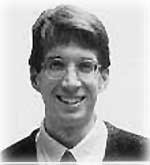
ENLARGE
|
Taxes on income, payroll, property and retail sales discourage
entrepreneurship, hiring, investment, savings and work ... they
also encourage sprawl, depletion of natural resources and
pollution of land, air and water. ...They could be replaced with
taxes on land values and on actions that pollute, deplete or
destroy habitat.
[From: "This Place on Earth"
(1996)]
|
East,
Ronald

ENLARGE
|
We have gone wrong on the land question, and everything else
has gone wrong automatically. I believe that there is no greater
or more urgent task of leadership for the engineer than to help
the community to a clear understanding of the simple economic laws
that govern distribution of benefits from human activities.
[The source of the quote is not known.
SCI believes this comes from Ronald East, who served Australia as
President of the Institution of Engineers in the 1950s with an
expertise on water usage]
|
Eckert,
Charles |
Now, what about tax on land values? We have observed that land
values are the result of community growth and advancing
civilization. They do not come into being as a result of the
activity of any particular individual, but by the activity of all
the people functioning as a social organism. Therefore, since no
particular individual is responsible for the origin and growth of
land values, but are due to the activity of all the people, it is
clear that the profits issuing from land values belong to all the
people.
[Member of the U.S. House of
Representatives during the 1930s, and one-time President of the
Henry George Foundation of America]
|
ECONOMIST
MAGAZINE |
By cutting taxes on labour, governments can remove one
disincentive to join the job market; by cutting taxes on capital,
one disincentive to save.
But by taxing the use of natural resources -- be they oil, or
cadium, or the dirt-absorbing capacity of the atmosphere --
governments can not only pay for lower taxes on labour and saving;
they can also make markets work better, by ensuring that prices
reflect the full costs of economic activity.
[From: The Economist, May 5,
1990]
|
Einstein,
Albert
(1879-1955)

ENLARGE
|
I have already read Henry George's great book and really
learnt a great deal from it. Yesterday evening I read with
admiration -- the address about Moses. Men like Henry George are
rare, unfortunately. One cannot imagine a more beautiful
combination of intellectual keenness, artistic form, and fervent
love of justice. Every line is written as if for our generation.
The spreading of these works is a really deserving cause, for our
generation especially has many and important things to learn from
Henry George.
[From: a letter to a Pennsylvania
women in response to a letter inquiring whether Einstein had read
Progress and Poverty, 1931. A copy of this letter is
available in the SCI library]
|
Eisenhower,
Dwight D.
(1890-1969)

ENLARGE
|
At the end of the Second World War, Eisenhower held a unique
vision of the future, one that would ensure both peace and
prosperity. He asked:
Why the world's resources could not be internationalized,
since raw materials represented the world's basic needs, they
should belong to and serve everybody.
[From: Blanche Cook. The
Declassified Eisenhower, 1985, p.229]
|
Ely,
Richard T.
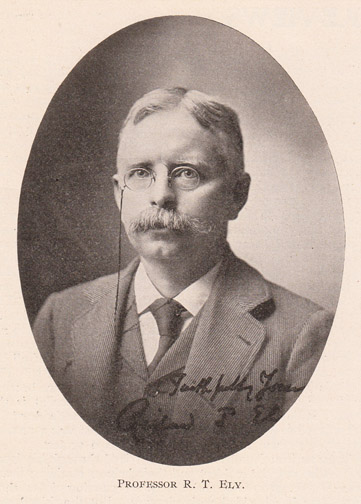
ENLARGE
|
One of the factors leading to the confusion which has
surrounded the taxation of land values is the old theory of
economic rent. Those who hold this theory regard land income as
the result of the spontaneous action of nature and land values as
the consequence of the niggardliness of nature in failing to
provide an adequate supply of land in relation to man's need for
it. Economic evoluton has disproved many of the hypotheses on
which the Richardian theory of rent is based. ...The concept of
economic relativity must lead us to draw up plans for the taxation
of land vlaues which will meet the needs of different times and of
different places.
[From: "Taxing Land Values and
Taxing Building Values," The Annals of The American
Academy of Political and Social Science, Vol. CXLVIII, No.
237, March, 1930, p.169]
|
Emerson,
Ralph Waldo

ENLARGE
|
Whilst another man has no land, my title to mine, and your
title to yours, is at once vitiated.
[source not identified]
|
Emerson,
Ralph Waldo |
As I am born to the earth, so the earth is given to me, what I
want of it to till and to plant; nor could I without pusillanimity
omit to claim so much.
[From: The Conservative, A
Lecture delivered at the Masonic Temple, Boston, December 9, 1841]
|
Emerson,
Ralph Waldo |
Grimly the same spirit (of progress) looks into the law of
property and accuses men of driving a trade in the great,
boundless providence which has given the air, the water and the
land to men to use and not to fence in and monopolize.
[From: On the Times (1841)]
|
Emerson,
Ralph Waldo |
I find this vast net-work, which you call property, extending
over the whole planet. I cannot occupy the bleakest crag of the
White Hills or the Allegheny Range, but some man or corporation
steps up to me to show me that it is his.
[From: The Conservative, A Lecture
delivered at the Masonic Temple, Boston, December 9, 1841]
|
Emerson,
Ralph Waldo |
Then he says: "If I am born into the earth, where is my
part? Have the goodness, gentlemen of this world, to show me my
wood lot, where I may fell my wood, my field where to plant my
corn, my pleasant ground where to build my cabin." ..."Touch
any wood or field or house-lot on your peril," cry all the
gentlemen of this world; "but you may come and work in ours
for us, and we will give you a peice of bread."
[From: The Conservative, A Lecture
delivered at the Masonic Temple, Boston, December 9, 1841]
|
Erskine,
John
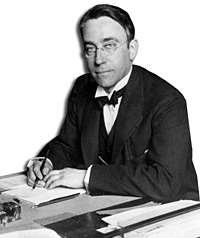
ENLARGE
|
I would say that the single tax theories of Henry George have
always seemed to me unanswerable, and I believe that when we have
tried other forms of taxation long enough to be convinced of their
injustice -- and I don't know how many centuries that will take --
we shall be ready for his simple and convincing ideas.
[John Erskine was a professor of english at Columbia University.
During the 1920s he introduced a "great books" program,
writing: “If the faculty believed that the boys in college
ought to be familiar with more than the titles of great books,
that happy result could be achieved in a new kind of course,
extending through two years, preferably the junior and senior
years, and devoted to the simple principle of reading one great
book a week, and discussing it in a weekly meeting which would
last two or three hours.”]
|
Evans,
George Henry
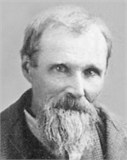
ENLARGE
|
"Evans subscribed to the idea that property rights
derived their legitimacy from the right of every human being to
himself and the fruits of his labor. But land was the gift of God,
not the product of toil. It followed that 'the land should not be
a matter of traffic, gift, or will' and government's duty to
preserve natural rights entailed a duty to regulate land tenure
for the common good. 'If any man has a right on earth, he has a
right to land enough to raise a habitation on,' Evans wrote in
1841. 'If he has a right to live, he has a right to land enough
for his subsistance. Deprive anyone of these rights, and you place
him at the mercy of those who possess them.' National Reformers
claimed that the doctrine of natural rights provided both a
diagnosis and a cure for the crisis of republican government in
America -- a crisis manifested by 'the haggard, care-worn
countennace of the daily laborer, the wasting form of the
overtasked seastress . . . [and] the squalid children trained to
beggary and deceit.' The surplus of 'white slaves' caused by the
mechanization of labor meant that working people were rapidly
losing the autonomy necessary for responsible citizenship. 'By
restoring his natural right to the soil,' Evans insisted, 'the
laborer would not be dependent on the employer, and would
consequently rise to his proper rank in society.' All the people's
representatives had to do was fix a limit on the amount of land
any individual might own."
[from: p. 172 of Charles McCurdy's
Anti-Rent Era in New York Politics: 1839-1865]
|
|
























